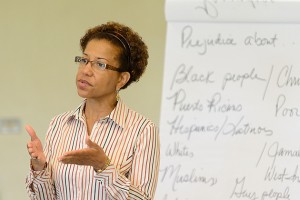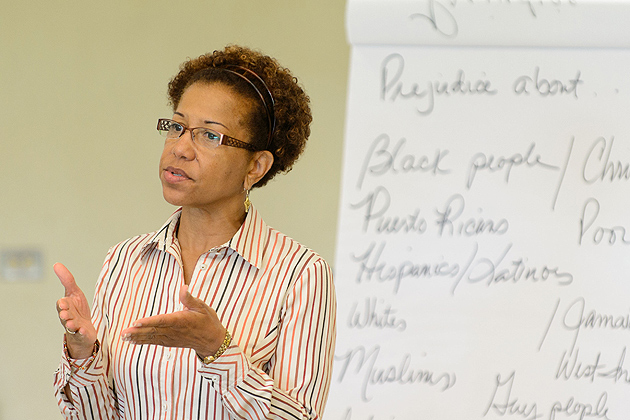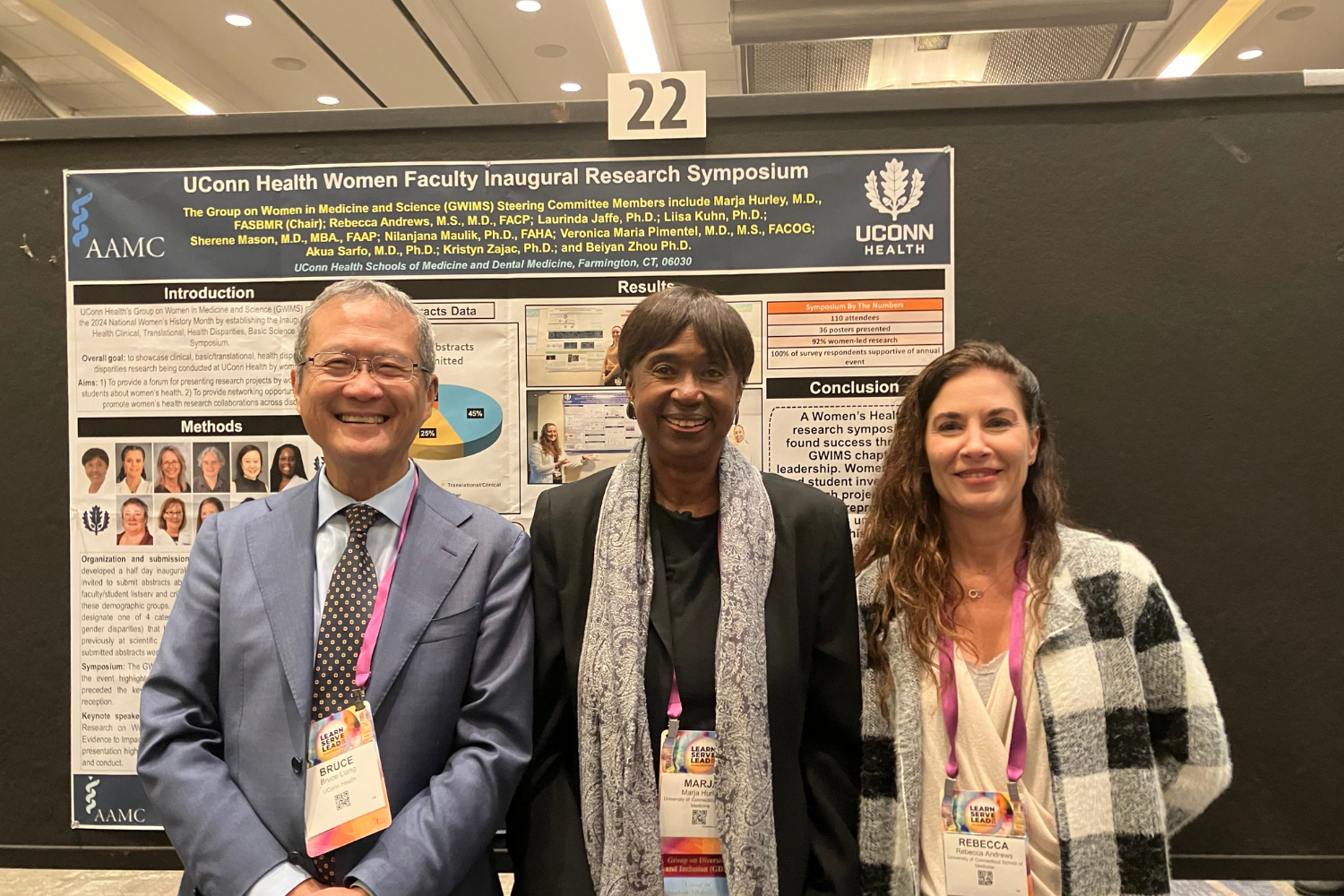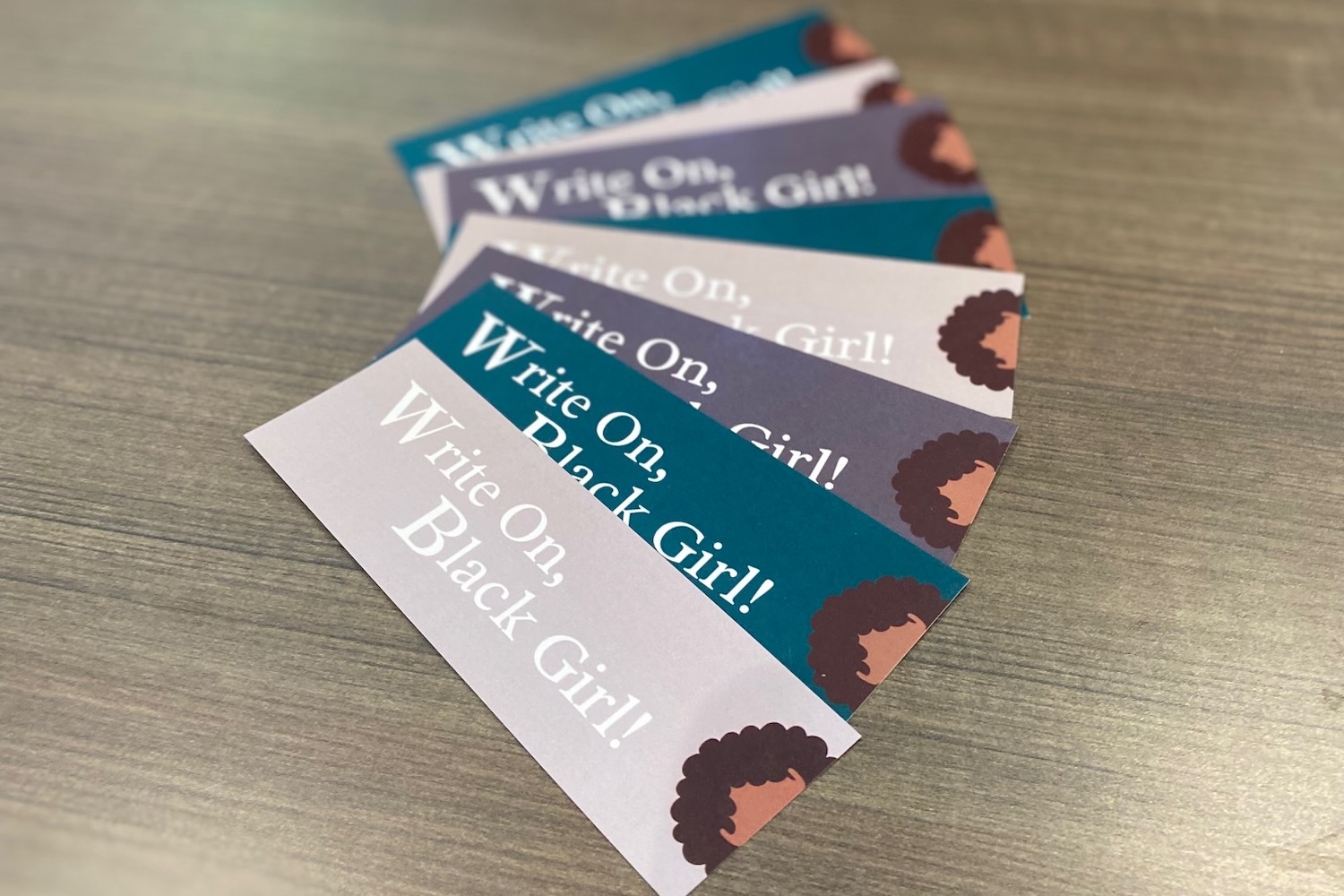
As a young girl growing up on state assistance in Baltimore’s troubled Harlem Park neighborhood, Salome Raheim experienced firsthand the challenges that come from economic and racial disparities, and how prejudices can arise from stereotypes and limited knowledge.
Yet Raheim persevered. She was the first in her family to graduate high school. She not only went to college but obtained a doctoral degree, and today serves as the dean of UConn’s School of Social Work.
Raheim didn’t let her circumstances stop her, and on Monday, she urged a group of high school students from Greater Hartford to do the same as the keynote speaker launching a three-week youth nonviolence leadership academy at Hartford’s Culinary Arts Academy in the city’s north end.
“I know that because of your choice to be here, you are to be the significant leaders of our time,” Raheim told the group of about 40 students ages 15-17. “We need you. I need you. Our community needs you.
“To be an effective leader you need to know yourself,” she continued. “You have to be willing to envision the impossible, and know that it is possible.”
The program, sponsored by the nonprofit Connecticut Center for Nonviolence, is designed to help children of incarcerated parents develop sustainable nonviolent leadership skills that can be applied to daily domestic, academic, and professional life. Patterned after the nonviolent leadership of the Rev. Dr. Martin Luther King Jr., the program teaches students to be Kingian Nonviolence Reconciliation trainers and proactive leaders in the movement to end the school-to-prison pipeline for many urban youth of color.
Victoria Christgau, the nonviolence center’s executive director, said, “We are honored to have [Dean Raheim] with us. She has a wealth of knowledge about diversity and inclusion, and her eloquence is greatly appreciated.”
Raheim wasted little time immersing students in the world of community activism. As part of a lesson on recognizing and appreciating the diversity of people around you, Raheim gave each of the students a sheet describing about 20 different individual descriptors – African American, Southerner, naturalized citizen – and asked them to go around the room getting endorsements from individuals who met each criteria. It not only pushed the students to get past their shyness, it taught them to appreciate the diversity in their immediate surroundings of which they may be unaware.
“To be a leader in the nonviolence movement, it is fundamental that there is an acceptance of differences,” Raheim said. “To be the best leaders that we can be, it is critical that we look at how we speak and how we think about ourselves and one another. Without that, we cannot lead, and we certainly cannot lead in a nonviolent context.”
Raheim advised the students that when they laugh at a comedian’s off-color jokes about people of different races or ethnicities, individuals who are disabled, or perhaps those with a different sexual orientation, they are doing violence to both themselves and others. She urged the students to take their nonviolence charge seriously.
“Sure, it’s about heroic actions, it’s about standing up for what’s right, demonstrating and marching,” Raheim said. “But it is also about who you are and what you do every day. What you do, what you think, how you act.”
The students said they appreciated Raheim’s candor and inspirational, informative message.
“I liked that it was hands-on and interactive,” said De’ajah Thornton, 16, of Bloomfield High School. “If someone was just talking to us, it wouldn’t be as good. We got to do things, got to know each other. It is teaching me to think differently about things.”
“It was interesting, something different,” said Gerina Fullwood, 17, of Southington High School. “I’ve never sat through a program like this.”
Keashaun Gamble, 16, of Hartford, said he appreciated the things Raheim said about prejudice and how pre-existing stereotypes and limited knowledge can twist an individual’s perspective on others.
“A lot of stuff she was saying is so true,” said Gamble. “I’m here to learn everything I can about nonviolence and how to be a leader. I want to bring it back to my community.”
The nonviolence leadership academy was made possible through funding support from the Institute for Municipal and Regional Policy at Central Connecticut State University and the Hartford Board of Education. The students were recommended for the program through Hartford’s Blue Hills Civic Association, as part of the association’s summer youth employment and learning program or SYELP, funded through Capital Workforce Partners of Hartford.



